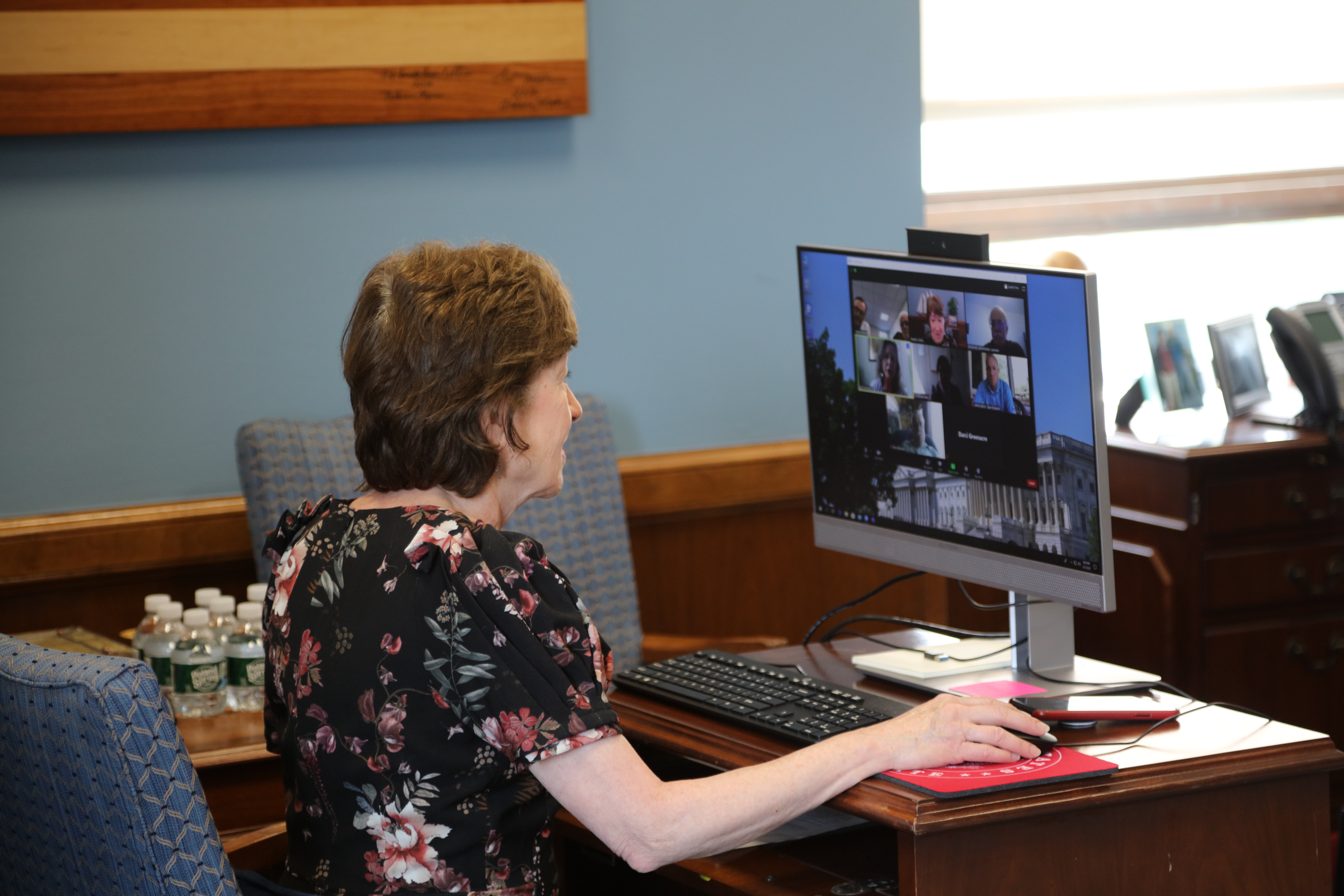Senator Collins Hosts Discussion with Maine Municipal Leaders About Need for Assistance for State and Local Governments
The CARES Act Senator Collins voted for has already allocated $1.25 billion for Maine
Click HERE for a high-resolution photo.
Washington, D.C.—This afternoon, U.S. Senator Susan Collins held a Zoom videoconference with members of the Maine Municipal Association’s Legislative and Policy Committee to discuss the need for federal pandemic aid for Maine’s towns and cities.
The municipal leaders updated Senator Collins on the financial difficulties their towns and cities are facing due to COVID-19 and expressed their support for the State and Municipal Assistance for Recovery and Transition (SMART) Act, which Senator Collins introduced last month with a bipartisan group of Senators. The SMART Act would provide $500 billion in emergency funding to every state, county, and community in the country—regardless of size—to address revenue shortfalls as a result of COVID-19.
“Maine towns and cities are facing severe revenue shortfalls that threaten sharp tax increases and deep cuts to essential services and layoffs of paramedics, firefighters, police, teachers, sanitation workers, public health and public works employees, and other front line workers in our state. I had a productive discussion with a group of local Maine leaders today about the need for financial assistance to help mitigate the impact of COVID-19 and prevent the burden from falling on Maine families,” said Senator Collins. “The SMART Act I introduced with a bipartisan group of my colleagues would provide Maine’s state and local governments with at least $2 billion to keep our communities strong.”
Moody’s forecasts that Maine may face one of the worst impacts in the entire country in terms of lost revenues. The SMART Act would help alleviate the harm caused by the coronavirus by providing Maine with at least $2 billion, with at least $333 million going to counties and $333 million going to towns and cities. Moreover, under the SMART Act, the $1.25 billion allocated to Maine from the CARES Act would be made more flexible – including being eligible to address revenue shortfalls.
The members of the Maine Municipal Association’s Legislative and Policy Committee who participated in the videoconference included:
- Auburn City Manager Peter Crichton;
- Cape Elizabeth Town Council member Jamie Garvin;
- Kennebunk Select Board Member Bill Ward Jr.
- Lewiston City Administrator Ed Barrett; and
- South Berwick Town Manager Perry Ellsworth;
- Windham Town Council member David Nadeau;
- Yarmouth Town Council member April Humphrey.
